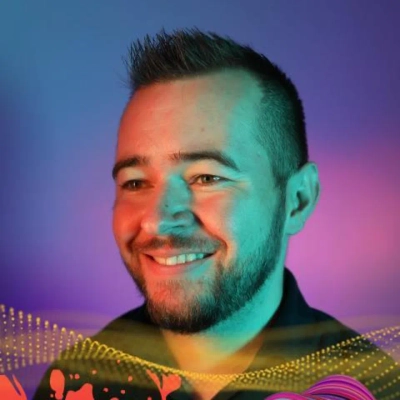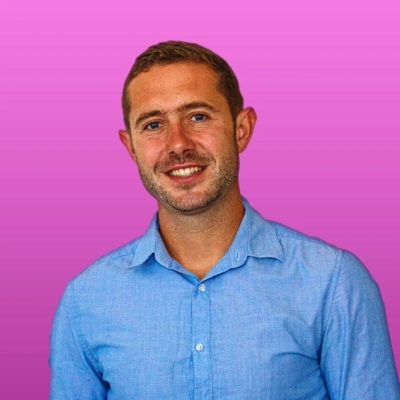19 Ways a Mentor Relationship Can Transform Your Career Path
Discover the transformative power of mentorship in shaping successful career paths. This article delves into real-world examples of how mentor relationships can revolutionize professional growth and development. Drawing from insights shared by industry experts, learn how mentorship can unlock hidden potential and open doors to new opportunities.
- Trust Accelerates Growth in Leadership Mentorship
- Enterprise Processes Transform Agency Approach
- Psychologist Mentor Shifts Focus to Community
- Facilitator Emphasizes Presence Over Performance
- Nurse Leader Transforms Mentorship into Partnership
- Father's Wisdom Shapes Business Foundation
- E-commerce Group Mentorship Drives Collective Growth
- Client Feedback Sparks Business Leadership Transformation
- Tech Mentor Combines Strategy with Execution
- Cross-Departmental Insight Broadens Career Perspective
- Tradesman Teaches Business Ownership Skills
- Systems Thinking Reframes Healthcare Career Focus
- Physician Mentor Inspires Long-Term Care Model
- Broker Mentor Unlocks Creative Financing Strategies
- Mentorship Journey Evolves into Reciprocal Learning
- Vision-Driven Approach Transforms Operations Focus
- Two-Way Mentorship Creates Sustainable Partnership
- Coding Mentor Inspires Architectural Thinking
- Structured Mentorship Complements Peer Wisdom
Trust Accelerates Growth in Leadership Mentorship
The Mentor Who Changed My Career: How Trust and Opportunity Shaped My Leadership Journey
When I think about the mentor who most shaped my career, it wasn't a corporate titan or bestselling author. It was my first principal, the supervisor who took a chance on me and hired me as an assistant principal. She had been charged with turning around a struggling school, and instead of keeping all the responsibility to herself, she trusted me to take on key parts of the work. That trust not only accelerated my growth but also gave me the confidence to lead in high-stakes situations.
What made her mentorship extraordinary wasn't just the advice she gave. It was how intentional she was in creating opportunities for me to grow. She didn't confine me to the traditional duties of my role. Instead, she stretched me, increasing my responsibilities as my capacity grew. She placed me in situations where I could learn, experiment, and lead in ways that were anything but routine. Those experiences fast-tracked my readiness for the principalship and taught me a lesson I carry with me today: real growth happens when someone believes in you enough to hand you responsibility before you feel fully ready.
Over the last 25 years, she has remained both mentor and friend. The relationship evolved, shifting into what I would call "reverse mentorship." There were times when I was able to share insights that helped her as well. The full-circle moment came just last year when we co-taught a class of international students aspiring to be leaders. Teaching side by side, I realized how mentorship, when nurtured, becomes a lifelong relationship.
Research supports this experience. A CNBC/SurveyMonkey study found that 91% of workers with a mentor are satisfied with their jobs, compared to just 63% of those without one. Mentorship doesn't just shape careers; it sustains engagement and drives performance.
For me, three lessons stand out:
1. Trust accelerates growth. When mentors extend trust, people rise to meet it.
2. Non-traditional opportunities matter. Development comes from being stretched beyond routine responsibilities.
3. Mentorship evolves. The strongest relationships grow into friendships and shared wisdom.
Leaders don't grow in comfort zones. They grow when someone trusts them enough to stretch. That wisdom shaped me into the leader I am today.
For anyone reading this, I'd ask: Whose potential could you accelerate by offering trust and opportunity right now?

Enterprise Processes Transform Agency Approach
One mentor relationship that fundamentally shifted my career trajectory was with Alan Whitaker, now Head of AI at BambooHR. Before meeting him, I was building an agency, Brainspin, doing software design and development, working largely by instinct. We outsourced development, designed what looked good, and chased opportunities without much of a framework or solid processes. Meeting Alan at a meetup I hosted opened my eyes to how enterprise teams really work and how ideas are turned into structured products.
In our first meeting, he offered me work designing concepts for clients Savvy Sherpa was serving. That role became a masterclass. I observed how he planned teams and life, how ideas were diagrammed, tech stacks evaluated, and how vision was shared with both product and engineering. He was not a designer by trade, but as a product owner and data scientist, he taught me how to sketch early, test things with real users or small groups, and use bootstrapped templates to validate quickly before investing in brand or custom code.
Because of him, at HubHive we use those same processes to move faster and plan deeper. We build in ways that allow rapid iteration, clearer communication, and better alignment across roles. I internalize what he modeled: careful validation, strong visual communication of product vision, and holding product and marketing aligned from first sketch through full launch.
If you are building now, find someone like Alan: someone who works across functions, who values both ideas and execution. Maximize that relationship by being observant, by asking how and why ideas are made, not just what. Seek to apprentice in process: invite yourself into meetings when possible, watch the tools they use, adopt their frameworks. The value doesn't come just from feedback but from seeing how seasoned people build structure, make trade-offs, and move from concept to meaningful impact.

Psychologist Mentor Shifts Focus to Community
In my line of work, you learn quickly that the best mentors aren't just people who teach you; they're people who show you a different way of seeing the world. Early in my career, I was fortunate enough to work under a psychologist who ran a small, private practice. I was focused on the clinical side—the theories, the modalities, the textbook stuff. My mindset was all about the one-on-one sessions, the deep dives into a client's history. I saw my work as a series of individual cases.
My mentor was different. He saw every client not just as a case but as part of a family, a community, a life. He had this incredible ability to look at the big picture. He'd say, "You can help a person in your office, but if you don't help the ecosystem they live in, the change won't stick." From a business standpoint, I was thinking about billable hours. He was thinking about building a reputation in the community as a resource that actually delivers lasting change, which is a much more valuable asset.
I went beyond a typical mentorship by asking to shadow him in situations outside of therapy sessions. I would go with him to community meetings, see him interact with other professionals, and watch how he built relationships with local organizations. He taught me that the real work happens in building a network of trust. He showed me how to talk to families, how to present to groups, and how to build partnerships with hospitals and other treatment providers. I learned that our business isn't just about what happens inside these walls; it's about being a trusted pillar in the community.
The outcome was a fundamental shift in my career. I stopped thinking of myself just as a clinician and started thinking like a community leader and business owner. He taught me that our true value lies in the network we build and the trust we earn. It's what drove me to start my own center and to make that community-focused approach our mission. That relationship didn't just teach me how to do the job; it showed me how to build something that lasts.
Facilitator Emphasizes Presence Over Performance
A formative mentorship came from a senior facilitator who emphasized presence over performance. Early in my career, I equated effectiveness with how much content I could deliver during a retreat. Watching her, I realized that silence, pacing, and attentiveness often had a greater impact than structured lectures. That insight reshaped not only how I led sessions but also how I approached leadership in general, prioritizing depth of connection rather than volume of material.
The value extended beyond guidance sessions because I treated the relationship as a living model rather than an advisory role. Instead of asking for advice alone, I observed how she handled tension in a group, how she adjusted her language to meet different cultural contexts, and how she built trust with staff. Documenting those observations and then practicing them deliberately turned her influence into a framework I could carry forward. The mentorship shifted from instruction to embodiment, which proved far more enduring.

Nurse Leader Transforms Mentorship into Partnership
A senior nurse leader I worked with during my residency became the most influential mentor in my career. What set the relationship apart was her insistence that mentorship extended beyond clinical advice. She pushed me to present at conferences, guided me through writing my first research abstract, and introduced me to professional networks I would not have accessed on my own. I maximized the value of her guidance by treating every piece of feedback as actionable, returning with updates rather than leaving it as casual advice. I also made a point to support her projects, whether it was assisting with data collection or helping onboard new staff, which turned the mentorship into a genuine partnership. That reciprocity deepened trust and opened doors far beyond what a one-directional relationship could achieve. The trajectory of my career—moving into leadership roles earlier than expected—was a direct result of that intentional engagement.

Father's Wisdom Shapes Business Foundation
I don't have a "mentor relationship" in the corporate sense. The person who fundamentally shifted my career trajectory was my father. He wasn't a business leader in a suit, but he was a leader in life. He taught me that the most important thing a person can do is take pride in their work and be a person of their word.
I "maximized the value" of that relationship by not just listening to his advice, but by making it the foundation of my business. He told me that my reputation was everything. He said, "Your work is your word." I took that to heart. I made it a point to do a great job on every single roof, and I made it a point to be a person who was always honest with my clients.
This has had a huge impact on my business. My crew knows that I'm a person who is committed to quality, and my clients know that I'm a person who is committed to them. This has built a lot of trust and generated many referrals. The "mentorship" wasn't a formal arrangement. It was a lifelong lesson in how to be a person who takes pride in their work.
My advice to any aspiring leader is to stop looking for a "mentor" in a book. The best resource you have is a person from whom you can learn. The best way to "maximize the value" of that relationship is to listen to them and to learn from their experience. The lessons you get from a person you trust are the most valuable kind there are.
E-commerce Group Mentorship Drives Collective Growth
My most pivotal mentor relationship wasn't with a single person, but with an informal group of fellow brand owners I met who were also scaling on Amazon. A traditional mentor is great for big-picture advice, but in e-commerce, the tactical challenges, like a sudden algorithm change or a new ad policy, change every week. This group became my lifeline for real-time problem-solving.
To get the most value, I had to treat it like a true partnership, not just a place to get answers. I made it a rule to contribute as much as I took. If I discovered a better way to handle logistics or ran a successful new ad creative, I shared the details immediately with the group. That reciprocity built a deep level of trust. It stopped being about high-level guidance and became about collective survival and shared growth, which is a much more powerful dynamic.

Client Feedback Sparks Business Leadership Transformation
A former client, who operated a rapidly expanding e-commerce brand, became the mentor who transformed my entire approach to business. He delivered harsh feedback, which exposed weak points in my strategies while challenging all my beliefs about funnels and paid media advertising. I transitioned from providing services to operating as a business leader after this experience. The transformation in my mindset enabled me to deliver greater value to my clients.
I joined forces with him to work directly on his projects. We worked together to develop marketing campaigns while making real-time budget changes and debating how to measure campaign success. The experience involved more than casual conversations because we shared financial responsibility together. This experience transformed my advice into automatic responses.
Tech Mentor Combines Strategy with Execution
In the early days of my career, I was fortunate to have a mentor with decades of experience running high-growth tech companies. She didn't just give advice - she challenged me to think about the bigger picture, from scaling operations to building a sustainable company culture. To get the most out of our relationship, I treated every conversation as a learning opportunity, coming prepared with questions and real scenarios from my work to discuss. I also asked for introductions to her network and requested feedback on actual decisions I was making so I could apply her insights in real time. Beyond advice, she encouraged me to take on stretch projects that pushed me out of my comfort zone, which accelerated my growth. That mentorship fundamentally changed my career by teaching me to combine strategic thinking with execution, and it still influences how I lead my own team today.

Cross-Departmental Insight Broadens Career Perspective
Early in my career, I was on a path to becoming a good marketer. I was so focused on my department that I wasn't looking at the bigger picture. I was a master of a single channel, but I wasn't a master of the entire business. I knew that if I was going to grow, I had to find a mentor who could help me see the business from a different perspective.
The mentor relationship that fundamentally shifted my career trajectory was with someone who had a background in operations and finance. They weren't a mentor who just told me what to do. They were a mentor who taught me how to think differently. The way I maximized the value of this relationship was to turn every marketing problem into an operational problem. My mentor taught me to stop just thinking about a campaign's creative and to start thinking about its cost, its return on investment, and its impact on our supply chain.
The impact this had on my career was profound. I went from being a good marketing person to someone who could lead an entire business. I learned that the best marketing campaign in the world is a failure if the operations team can't deliver on the promise. My career trajectory was a direct result of me learning the language of a different department.
My advice is simple: the best mentor relationship isn't with a person who is just like you. It's with a person who has a different perspective. The best way to grow is to learn the language of a different department. That's a mentor relationship that will always lead to success.

Tradesman Teaches Business Ownership Skills
I don't have a "mentor relationship" that "shifted my career trajectory." I just had a good mentor who taught me a simple, practical lesson that changed my life.
The relationship was with a seasoned tradesman who took me under his wing when I was an apprentice. He didn't just teach me how to do the job; he taught me how to be a professional. He taught me that a great electrician is more than just a person who can do a job. He's someone who is punctual, clean, and honest with his clients.
I maximized the value of this relationship beyond typical mentorship by paying attention to how he ran his business. I observed how he communicated with clients, how he prepared his quotes, and how he handled difficult situations. He didn't just teach me the trade; he showed me how to run a professional business. I realized that a good tradesman is a good business owner, and that a great business is built on an excellent reputation.
The impact has been on my business's growth and my sales. By watching him, I learned that a good business is built on a great reputation. I learned that a professional who stands by his work is the most valuable asset a business can have. This is the "career trajectory" that was fundamentally shifted. I transitioned from being a tradesman to being a business owner.
My advice is simple: your best "mentor" is a good dose of common sense. A business can't succeed without a great reputation. Stop looking for a corporate gimmick and start focusing on doing great work and on building a reputation. That's the most effective way to "maximize the value of a mentorship" and to build a business that will last.

Systems Thinking Reframes Healthcare Career Focus
A defining mentorship came from a physician who blended clinical expertise with a systems-level view of healthcare delivery. He pushed me to stop thinking only in terms of individual patient encounters and start analyzing patterns—how scheduling inefficiencies, patient education gaps, or missed follow-ups shaped overall outcomes. The way I maximized the relationship was by treating every piece of advice as a prompt for application rather than theory. When he explained how small workflow adjustments could reduce missed appointments, I piloted a text reminder system and brought back real data showing a 14 percent reduction in no-shows. Sharing those results with him turned our conversations into collaborative problem-solving rather than one-sided guidance. That feedback loop deepened the mentorship and accelerated my growth. The shift was profound because it reframed my career focus from being a good clinician to building systems that sustain better care at scale.

Physician Mentor Inspires Long-Term Care Model
A pivotal mentor for me was a senior physician who emphasized the importance of viewing patient care as a long-term relationship rather than a series of isolated encounters. He encouraged me to measure success not only by immediate outcomes but also by how consistently patients stayed engaged in preventive care and chronic disease management over the years. That perspective reshaped how I approached medicine and eventually guided my commitment to a direct care model.
What made the relationship transformative was that I treated it as a partnership rather than a hierarchy. I regularly brought him case reviews, asked him to challenge my reasoning, and shared my own observations from younger patients or new care models. Instead of passively receiving advice, I created a dialogue that blended his decades of experience with fresh insights. That reciprocity elevated the mentorship into a collaborative exchange, which gave me both confidence and clarity in charting a different path in patient care.

Broker Mentor Unlocks Creative Financing Strategies
A senior broker who specialized in creative financing became the mentor who most influenced my path. Early in my career, I focused heavily on traditional transactions, which limited the pool of buyers I could serve. He showed me how structuring owner-financed deals opened opportunities for clients who did not qualify through conventional lending. That perspective shifted my entire approach to property sales.
What made the relationship transformative was treating it as a collaboration rather than one-way guidance. I assisted him on complex deals, taking on the groundwork of research and document preparation, which gave me firsthand exposure to strategies not found in training manuals. In return, he involved me in negotiations and explained the reasoning behind each decision. The combination of practical contribution and active learning built a foundation that accelerated my confidence and independence as an agent far faster than formal coursework ever could.

Mentorship Journey Evolves into Reciprocal Learning
When I was a new entrepreneur, I initially hesitated to seek guidance, but developing relationships with several key mentors fundamentally changed my career trajectory by helping me avoid costly mistakes and accelerate my learning process. These mentorship connections served as invaluable sounding boards during critical decision points in my professional journey. I found that the most valuable aspect of these relationships went beyond just receiving advice—I maximized their impact by eventually becoming a mentor to others, which unexpectedly deepened my own understanding and brought substantial fulfillment to my professional life.

Vision-Driven Approach Transforms Operations Focus
One mentor who deeply influenced my career encouraged me to shift my perspective from being operations-driven to being vision-driven. Instead of only focusing on execution, they pushed me to think about scalability, culture, and long-term impact. I maximized this relationship by treating it as an ongoing dialogue—regularly seeking feedback, sharing progress, and applying their advice in real-world decisions. This dynamic exchange made the mentorship far more transformative than a traditional guidance role.
Skandashree Bali, CEO & Co-Founder, Pawland | https://www.pawland.com

Two-Way Mentorship Creates Sustainable Partnership
My relationship with a Series C company CEO became transformational for my career growth through our unique two-way mentorship approach. While receiving invaluable guidance on hiring strategies, team management principles, and investor relations, I made sure to provide substantial value in return. I regularly shared relevant industry insights, marketing strategies, and prepared detailed briefings on sectors unfamiliar to my mentor. This reciprocal exchange created a sustainable partnership that delivered far more value than a traditional one-sided mentoring arrangement would have permitted.

Coding Mentor Inspires Architectural Thinking
Early in my career, a mentor fundamentally changed my trajectory when they challenged my approach to a complex coding project. Rather than focusing solely on quick fixes, they pushed me to consider the broader impact and sustainability of my solutions. This shift in perspective was transformative, helping me evolve from a task-oriented developer to someone who could architect scalable systems with long-term value. The relationship went beyond technical guidance as they taught me to question assumptions and evaluate the downstream effects of design decisions, skills that have proven invaluable throughout my leadership journey.

Structured Mentorship Complements Peer Wisdom
My relationship with an early career mentor, who provided both guidance and accountability, was transformative in helping me navigate professional challenges when I was just starting out. This mentorship was particularly valuable because we established clear expectations and regular check-ins that kept me focused on growth objectives. To maximize the value beyond typical mentorship, I complemented this relationship with participation in peer mastermind groups, which provided diverse perspectives that my primary mentor alone couldn't offer. The combination of structured one-on-one mentorship alongside collective peer wisdom created a comprehensive support system that significantly accelerated my professional development.





